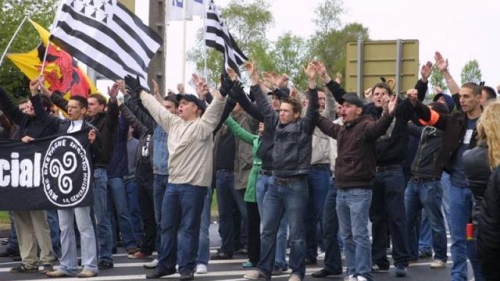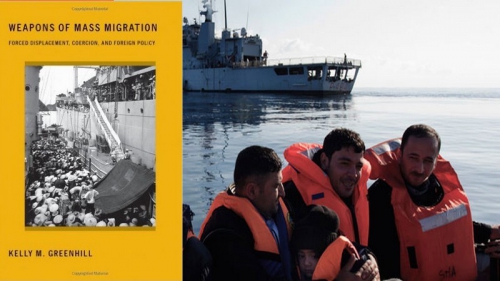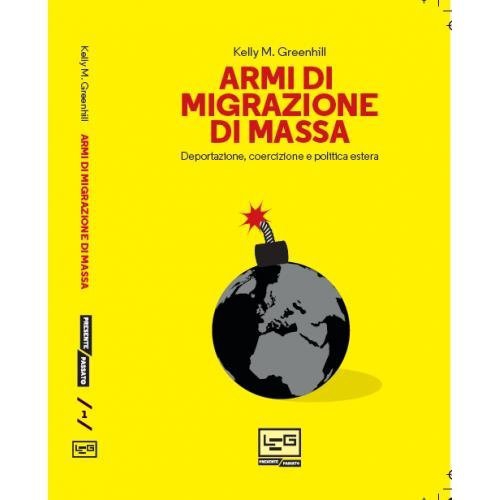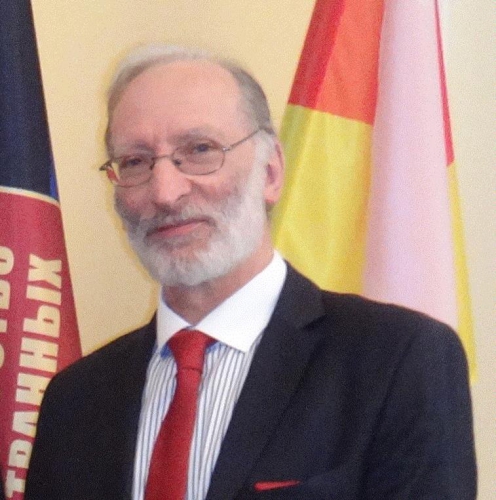The De-Nationalization of the Global European Diaspora
When the Alt Right speaks about a rise in “white identity politics” or increasing racial tensions, they are observing phenomena which could lead to nationalist politics and the reorientation of Western society towards ethnocentrism and cultural preservation. Conversely, they may also be observing the dying gasps of an older model of existence for Western peoples. Outside of a few Eastern European countries, nationalism is largely civic, not ethnic or racial, for Europeans and Eurocolonials. Anyone can be or become an American. Anyone can be or become British. Anyone can be or become French. Anyone can be or become German. And so forth. Expressions of nationality are almost purely based on location and [sometimes] language rather than, say, a shared biological, cultural, historical, political, and geographic heritage. Most Americans agree that an American can be of any race, ethnicity, or religion. Increasing numbers of Europeans feel that way about Europeans as well. With that attitude, how can one speak of a European or Eurocolonial nation as anything other than an administrative unit of the Atlanticist social and economic order (which is founded upon anti-nationalism in the first place)?
Despite nationalist politics being mostly civic rather than ethnic or “identitarian”—those are more metapolitical and largely lacking in formal representation— nationalist parties and movements are treated as if they were ethnic or identitarian by their opponents. And that’s only when slightly exaggerating. When they really want to throw a punch, they label these parties, movements, and ideologies as fascist or nazi.

It is hard to say which has done more to undo the national sentiments created in the nineteenth and twentieth centuries: globalization and the erosion of local identity, or deliberate social and political initiatives to suppress and morally deconstruct national sentiments. The poisoning of the nationalist “brand” is potent, but so too are the effects of global mass media in homogenizing and leveling the interests and tastes of their consumers across the Western world. Just as media was instrumental in creating a sense of national unity, it may have become instrumental in undermining it. Even civic nationalist outbursts like 2016’s Brexit or the election of Donald Trump as President of the United States are still taking place within a firmly integrated Atlanticist context (which is a form of liberal globalism). Britain will remain economically and ideologically tied to continental Europe, even if it has its own currency and trade regulations. The United States will remain the engine of NATO and heavily involved in the geopolitics of Europe.
Regardless of what has greater explanatory power in determining why nationalism is dying on the long arc of history, nationalism is evidently dying. If most members of the ethnic French nation or the ethnic (white) American nation saw themselves as members of ethnic nations, there would be ethnic nationalist politicians in power. Labeling them as “nazi” would fall flat. Most people would not view themselves as the political personification of evil for sharing views with ethnic nationalists, if most people were ethnic nationalists. The fascist/nazi accusation works precisely because an audience of people who are either civic nationalists or liberals are already primed to oppose nazism and fascism, as such ideologies are popularly conceived of as forms of evil.
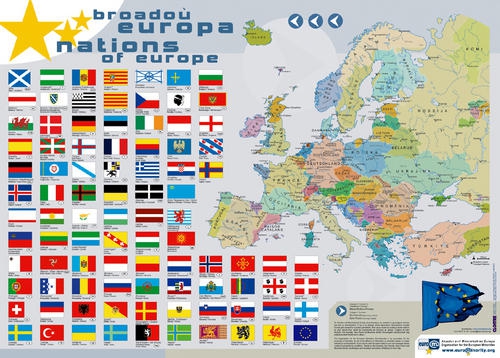
Narratives of these nations being oppressed by “globalists” fall flat when one realizes that most Westerners outside of Eastern Europe see themselves not as members of an ethnic nation, but as colorblind communities of people whose ethnic or racial similarities are politically irrelevant to them. The most agency rests in the ethnic nation itself in suppressing its ethnic nationalism. Otherwise there would simply be too large of a politically nationalist majority for it to be discarded.
What this means is that we should not be terribly surprised when Westerners have little or no reaction to the projection that they are going to become minorities in their historical geographic ranges of Europe, North America, and British Oceania due to mass migration and declining fertility. (The Southern Cone [2] as well may become less European over time due to migration from the rest of South America and intermarriage, though the racial and political contexts are different in Latin America).
These are powerful currents. We should not assume that the attempt to form a global order built upon the free movement of capital, goods, and people will fail any time soon. Capitalism generates lots of profits. Entertainment technologies give idle minds something to be engrossed in. And diversity and multiculturalism are popular enough to remain the elected state ideology of much of the Western world. These are all things that the masses permit, out of choice or inaction. As long as they can still go shopping, what does it matter? Also if you care about the ethnic composition of a country you are a bad person.
The reality is that Europeans and Eurocolonials in the aggregate do not believe their own nations matter enough to be perpetuated as demographic majorities inside what were once their nation-states. While an extremely grim picture for people who believe in celebrating and continuing our Western heritage and legacy for generations to come, the problem is ultimately one of attachment to a form of social organization, that of the nation-state. The notion that “we” will become minorities in “our own countries” is not appealing to us, but it is of no negative political consequence to everyone else. A minority of Westerners care about this (and of that minority, some actually celebrate becoming a minority as atonement for racism or colonialism, etc.). As the minority that cares about this from a self-interested perspective and not one of masochism, we need to ask ourselves different questions about how to continue our traditions, our cultures, and our lines. We need to think in the terms of the world we are living in, a de-nationalized world.
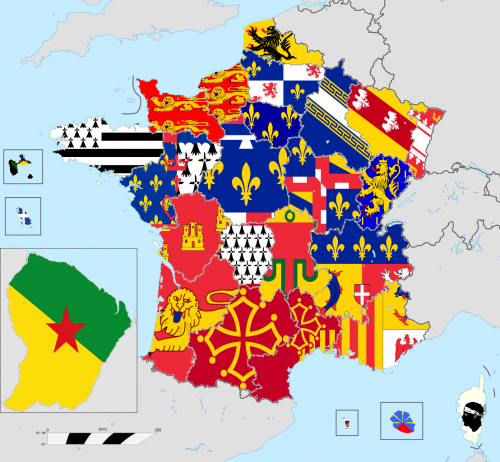
Europeans and Eurocolonials are de-nationalized peoples. Most became political nations, centered around a shared biological, cultural, historical, political, and geographic heritage in the nineteenth and twentieth centuries, but they have since lost this feeling. The national sentiment, the concept of a folk-based unity and shared ethno-cultural identity, is clearly gone to anyone observing our politics from a mental state of non-hysteria, no matter what the paranoid style of political journalism churns out. America, Britain, France and the like have still refused to ban immigration knowing full well it will make Americans, the British, the French, and so forth, into minorities. For them, there is no fundamental distinction between current Americans and to-become Americans, current Britons and to-become Britons. They are separated by paperwork, perhaps an ocean or two.
Once a civilizational feeling of that magnitude is lost, it is very difficult to resurrect. It may remain in our memories like the Roman Empire has—who could ever forget the centuries of splendor of Britain, France, and the United States for that matter—but in the political lives of Westerners it will be a corpse.
You cannot bring a corpse back to life. That’s the premise of the Fifth Political Theory (5PT [3]) with regard to ethnic nationalism. The way forward is not to cling to the nation-state or to try to carve one out of a multi-ethnic imperial state. It is to reorient ourselves towards a diaspora model. The West is becoming de-nationalized. Years from now, all these national identities that existed are going to be gone and the people inside the former nation-states will look and behave quite differently. If we are to become a minority in what is becoming someone else’s country, and we want to continue our Western heritage, we will need to embrace the ur-identity, that of the tribe. Because we are a tribe inside a vast, multi-ethnic superstate that is increasingly foreign to us (and us foreign to it), we are also a diaspora.
The nation was, in many respects, just a large tribe. But with it came increasing social complexity and geographic dispersal that resulted in regionalism and political splintering. We who embrace our identity and heritage as sons and daughters of Europe are a minority among people who share “our” heritage in all its forms (cultural, genetic, ethnic, political, religious, etc.), and we can only convert so many people to our way of thinking in what is frankly a race against time at the national level. As our tribe scales down, it will fortunately become more cohesive and resilient. And if we reject the national model, we do not need to burden ourselves with pursuing fruitless objectives at that level. We can focus on the tribal level.
Ultimately, 5PT sees nationalist politics and building a mass movement to “take our country back” or “save our nation” as a futile waste of resources that we need to build our tribe. 5PT is about Westerners with a future, not Westerners with a death wish. You cannot save those who do not want to be saved. What you can do is find those who want to save themselves, and build them into the network. If those of us alive today fail to link together the remnants of our atomized people who still feel the vague stirrings of self-preservation and civilizational perpetuation, it will not happen. We will fold into the new kind of race and materialistic philosophy that is being created, and all that came before it will be obliterated to make room for more shopping malls and immigrant communities. We shall lose our noble virtues, our Promethean fire, and the legacy of thousands of years to the successors of managerial liberalism and their precious “end of history.”

5PT says our choices are as such: We become that immigrant community living in a strange land, or we go to the mall and never come back. There are forces which cannot be fought, but only ridden. The Atlanticist order will not allow itself to be voted out of existence, and if we are to be pushed from the world stage as nations, we will simply have to find another abode as a people.
Source: https://fifthpolitical.wordpress.com/2017/05/05/the-de-na... [4]



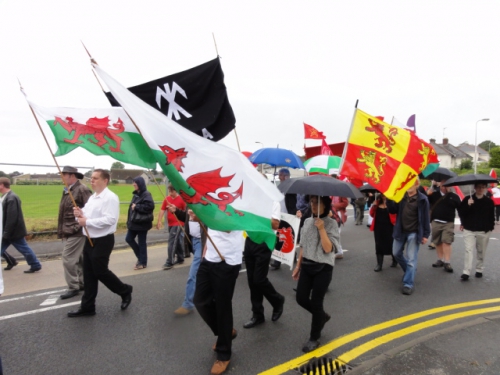

 del.icio.us
del.icio.us
 Digg
Digg